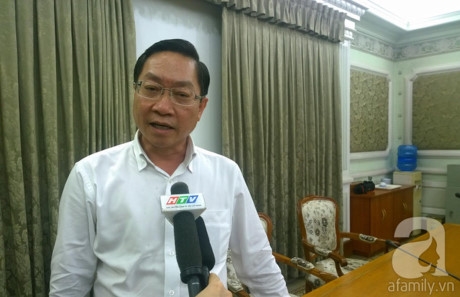.jfif) Opinion
Opinion

Nguyễn Tấn Bỉnh, director of the HCM City's Department of Health, spoke to the Người Lao Động (The labourer) newspaper about plans to establish an independent food safety management agency under the People’s Committee.
 |
Assoc Prof Nguyễn Tấn Bỉnh, director of the HCM City’s Department of Health, spoke to the Người Lao Động (The labourer) newspaper about plans to establish an independent food safety management agency under the People’s Committee.
Could you tell us about the plans to set up an independent food safety agency in HCM City?
The city People’s Committee has ordered the Department of Home Affairs to work with three departments responsible for management of food safety and hygiene -- health, agriculture and rural development, and industry and trade -- to initiate the project. It is expected to be ready for submission to the committee by mid-May.
It will be an effective management model that is applied widely in developed countries.
The agency will be equipped with food testing laboratories and have the authority to monitor food safety at the stages of producing, processing, transporting and selling to customers.
It will also have the authority to issue licences to producers and inspect products when they reach the marketplace to ensure food quality and safety. Customers will feel safe about choosing products with food safety stamps affixed by this agency.
Under the revised Criminal Procedure Code that will take effect on July 1, those who violate the Food Safety Law could face criminal liability. Therefore, State management agencies’ capacity to test foods should be enhanced to ensure accurate results are available to punish violators.
Could you tell us about the operations of the food safety agency?
The Department of Health’s food safety and hygiene division will play a key role in the new agency.
The People’s Committee plans to invest in a food testing laboratory to be managed by the city’s centre for quality control of food, drug and cosmetics.
To ensure effective inspection of the farm-to-table food chain, co-operation among related divisions like animal health, plant protection, fisheries resources protection and quality management and market management is needed.
The new agency will be given more authority for management of food safety.
Most food is produced at facilities located outside the city. Will the new agency be able to manage them?
The city has worked with neighbouring provinces to set up multi-agency monitoring to access local farming and processing facilities and slaughter houses to issue certificates to food safety chains.
A total of 76 certificates have been issued to 16 fruit, fisheries, pork and poultry brands.
Samples are taken periodically for testing to ensure initial food safety commitments are fulfilled.
Samples of these certified products are also taken at random from three wholesale markets in HCM City – Bình Điền, Hóc Môn and Thủ Đức – which supply 70 per cent of the city’s food. —VNS




